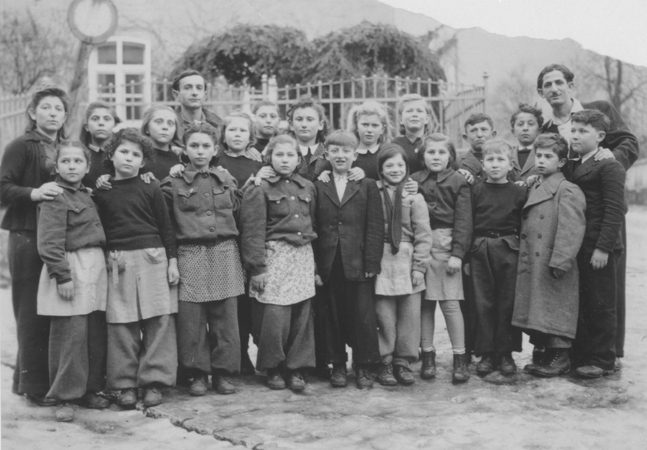
What is the most appropriate book for middle schoolers to read to learn about the Holocaust?
My own sons read Elie Wiesel’s Night when they were in 8th grade. I also have the impression that Anne Frank is a very popular choice though it seems to me decreasingly so, perhaps because of the recognition that her story doesn’t cover the concentration camp experience. Were I to choose, I might recommend Clara’s War by Clara Kramer, a sort of “Anne Frank had it easy (until their hiding place was found)” narrative in which 15-year-old Clara and two other families hide in a crawl space but we learn what happens in the ghetto due to an aunt who crosses back and forth and we learn about unlikely heroes in the form of their ethnic-German rescuer.
When I do a google search to see what experts are recommending, I see that the School Library Journal, in January of 2020, made recommendations including I Have Lived a Thousand Years: Growing up in the Holocaust by Livia Britton-Jackson, Hidden: A Child’s Story of the Holocaust by Loic Dauvillier, The Boy on the Wooden Box: How the Impossible Became Possible . . . On Schindler’s List by Leon Leyson, and others. The Jewish Book Council‘s recommendations include Survivors Club by Michael Bornstein and the book-pair Whispers from the Camps and Whispers from the Ghetto by Kathy Kacer and Sharon E. McKay. Only when I scroll down a bit further in the search results do I find the book Maus by Art Spiegelman, which appears among 16 others at Common Sense Media.
Which makes the media’s narrative that a school district in Tennessee is primitive and backwards and Holocaust denying because they have “banned” Maus incredibly frustrating.
The BBC headline four days ago was, “Tennessee school board bans teaching of Holocaust graphic novel Maus.” Today in the Washington Post we read, “Art Spiegelman sees the new ban of his book ‘Maus’ as a ‘red alert’:
In the current sociopolitical climate, he views the Tennessee vote as no anomaly. “It’s part of a continuum, and just a harbinger of things to come,” Spiegelman says, adding that “the control of people’s thoughts is essential to all of this.”
As such school votes strategically aim to limit “what people can learn, what they can understand and think about,” he says, there is “at least one part of our political spectrum that seems to be very enthusiastic about” banning books.
“This is a red alert. It’s not just: ‘How dare they deny the Holocaust?’ ” he says with a mock gasp. “They’ll deny anything.”
But if you take a closer look at the minutes of the board of education’s meeting, it becomes clear that the board had no intention of “banning” the book or removing education about the Holocaust from the curriculum. The board members make it very clear they want to keep the unit but find a different “anchor” text for in-classroom study. And they are not worried about “nudity” and profanity merely out of some misguided prudery, but instead, they worry that they will have issues with a school disciplinary policy that says, “saying the word ‘bitch’ is not permitted,” while assigning a text that includes this. This was also a text from a pre-canned curriculum that was adopted without their usual oversight due to covid restrictions.
It is also clear even from a quick overview (I was unable to access the book itself as there are now numerous holds on library copies) that Maus is a complex book; it is not merely about survival as a Jew in Nazi-occupied Poland but about the author’s relationship with his father, a mother who committed suicide, and other challenging themes. And just because the book is a graphic novel does not automatically mean it is the most appropriate means of teaching 8th graders, specifically.
But could this board of education — and recall that in other circumstances we are reminded that boards of education are humble volunteers from the community — have known what a firestorm this would have generated? Perhaps if they had, they would have been more strategic and have done their homework to have presented an alternate choice. But it is sad that their earnest efforts to find the right book have led to these accusations by people who are either uninterested in the truth or are perfectly willing to take advantage of this report to further their “anti-Red State” political objectives.
Image: yes, I am deliberately not using a picture of concentration camp victims. These are children at a DP (displaced persons) camp, post war.












